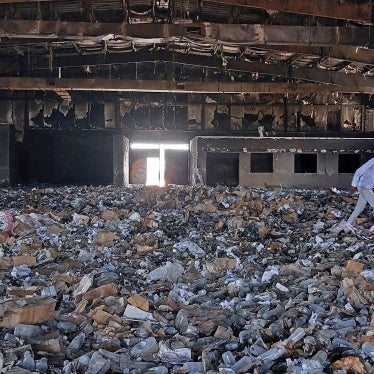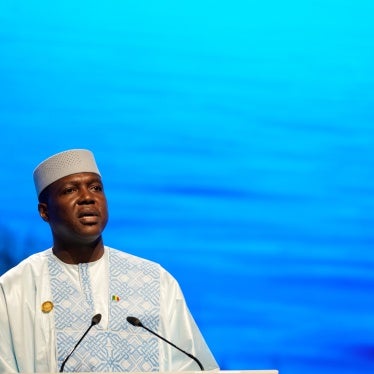(Nairobi) – Mediators and participants at the Brazzaville forum to discuss the Central African Republic crisis should reject any calls for an amnesty for serious human rights crimes, Human Rights Watch said today.
On July 21, 2014, President Denis Sassou Nguesso of the Republic of the Congo will begin mediation efforts in Brazzaville to attempt to reach a ceasefire between the warring factions in the Central African Republic. The international community should ensure that justice is an essential component of the talks, with adherence to international standards that deem amnesty for serious crimes unacceptable, Human Rights Watch said.
“Amnesty is often the first demand from leaders who have blood on their hands,” said Daniel Bekele, Africa director at Human Rights Watch. “Mediators need to make clear that lasting peace cannot be achieved without justice and that no one is above the law.”
International law is clear on the need for justice for serious crimes and places an obligation on countries to provide victims of human rights abuses with an effective remedy. Fair and credible prosecutions of serious crimes are an essential means of providing redress and rebuilding respect for the rule of law. Both the UN and the African Commission on Human and Peoples’ Rights have issued principles against amnesty for serious crimes in peace deals.
The Forum for National Reconciliation and Political Dialogue for the Central African Republic, expected to last through July 23, is intended to include representatives of the armed factions, the interim government, and members of nongovernmental groups. In addition to seeking a cessation of hostilities agreement, the forum will try to secure agreement on disarmament and a political framework for the transition to elections.
The organizers should seek broad participation of activists, organizations, and religious communities in any political dialogue, Human Rights Watch said.
“This conference should not be limited to those who fought their way to the negotiation table and may bear responsibility for serious crimes,” Bekele said. “It is important to have broad representation from nongovernmental groups for reconciliation and political dialogue to ensure that the voices of those who have borne the brunt of atrocities are heard.”
An international mediation team will support President Sassou Nguesso’s mediation efforts. The team will include representatives from the African Union, the United Nations, France, the European Union, and the United States, among others.
The Central African Republic has been in acute crisis since early 2013, when the mostly Muslim Seleka rebels seized power in a campaign characterized by widespread killing of civilians, burning and looting of homes, and other serious crimes. In mid-2013, groups calling themselves the anti-balaka organized to fight against the Seleka, and began committing large-scale reprisal attacks against Muslim civilians. Insecurity still reigns, with killings on an almost daily basis.
Human Rights Watch experience over the past 20 years in many countries suggests that peace without justice often leads to renewed cycles of violence. The lack of accountability for past crimes in the Central African Republic has been a key factor in exacerbating the current crisis.
National authorities should break with the past by making a firm commitment to ensuring that those responsible for serious crimes will be held accountable, Human Rights Watch said. The authorities should rebuild their justice system and bring those responsible for crimes to justice in fair and credible trials.
The Central African Republic is a state party to the Rome Statute establishing the International Criminal Court (ICC), which obligates its government to cooperate in the prosecution of individuals responsible for war crimes, crimes against humanity, and genocide. In May 2014 the interim president, Catherine Samba-Panza, formally asked the ICC prosecutor to open a new investigation in the country.
“Mediators and participants at the Brazzaville forum need to keep the thousands of victims in the Central African Republic and their desire for justice at the top of the agenda,” Bekele said. “Amnesty for those most responsible for crimes against humanity and other heinous crimes is simply not an option.”








